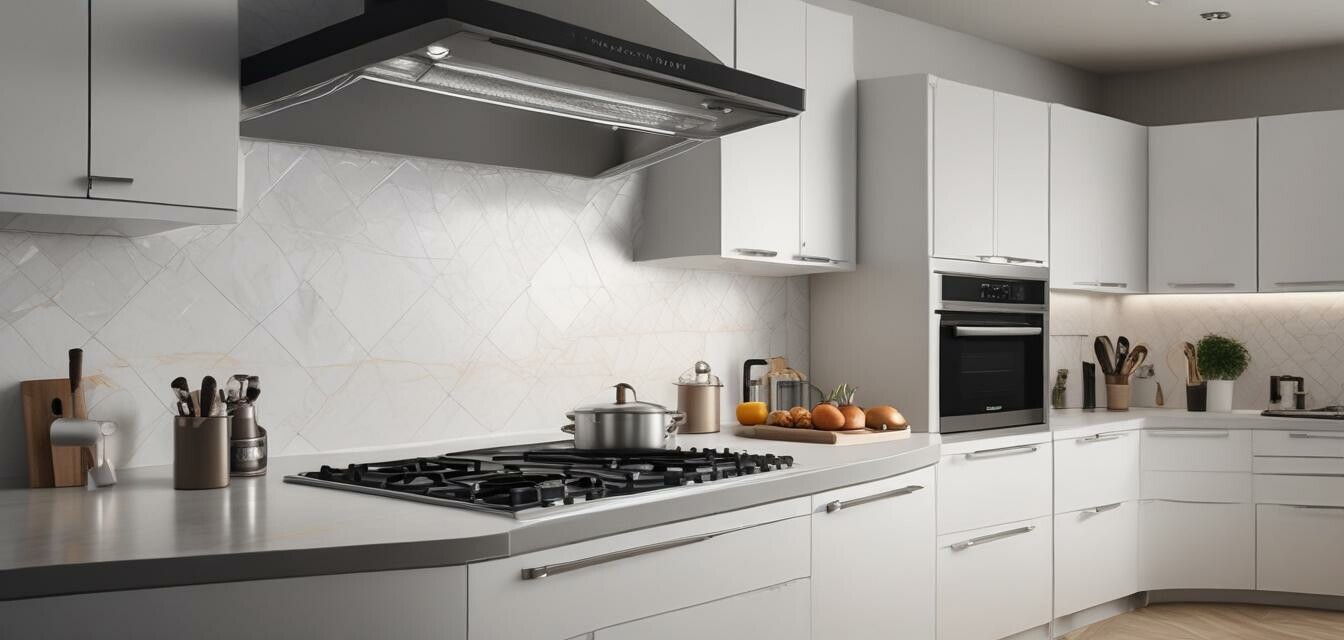
The Impact of AI on Kitchen Appliances
Key Takeaways
- Artificial Intelligence (AI) is revolutionizing the way we interact with kitchen appliances.
- Smart ovens and intelligent cooktops offer enhanced cooking precision and convenience.
- Predictive technology is streamlining meal preparation and improving energy efficiency.
- AI-enabled devices can enhance user experience by learning user preferences over time.
- The integration of AI fosters a more eco-friendly kitchen environment.
As we embrace a technology-driven world, one of the most significant transformations is seen in our kitchens. Artificial intelligence is making its mark, reshaping kitchen appliances into intuitive, user-friendly devices. This article explores how AI is not only enhancing the efficiency of kitchen appliances but also transforming user interactions and experiences. Let's dive into how AI is bringing your kitchen into the future.
AI and Smart Ovens: Redefining Cooking
Smart ovens are at the forefront of kitchen technology, incorporating features that make cooking easier and more efficient. With machine learning algorithms, these ovens can:
- Recognize food types and automatically adjust cooking settings.
- Provide step-by-step cooking instructions through voice prompts.
- Control cooking time and temperature based on real-time data.
By utilizing AI, smart ovens can learn from previous cooking attempts, refining their capabilities to cater specifically to user preferences. For more insights on smart ovens, check out our Smart kitchen buying guides.
Intelligent Cooktops: Precision and Control
Another remarkable AI innovation is the intelligent cooktop. These cooktops offer enhanced control over heat distribution and cooking techniques. Key features include:
- Smart temperature sensing for perfect cooking outcomes.
- Integration with recipes to adjust settings automatically.
- Self-cleaning capabilities that reduce the hassle of maintenance.
Intelligent cooktops not only enhance cooking precision but also contribute to a more energy-efficient kitchen. To learn more about these innovations, explore our article on kitchen appliance trends.
The Role of AI in Predictive Technology
AI empowers kitchen appliances to utilize predictive technology effectively. This means that appliances can anticipate user needs based on previous patterns. For example, AI-enabled refrigerators can:
- Monitor food inventory and suggest recipes based on ingredients on hand.
- Send alerts when food items are nearing expiration.
- Automatically create grocery lists for restocking purposes.
This kind of intelligent interaction not only saves time but also reduces food waste, leading to a more sustainable kitchen environment. If you're interested in learning how AI enhances sustainability, visit our section on touchless faucets to see water-saving technologies in action.
Enhanced User Experiences
AI technology aims to make kitchen tasks less complex and more enjoyable. By learning user preferences, smart appliances can provide personalized experiences. For example:
- Voice-activated commands allow for hands-free operation.
- Customized cooking programs tailored to preferred flavors and styles.
- Instant feedback during cooking processes enhances cooking skills.
The impact of these user-centric advancements significantly improves daily cooking routines. Discover how advanced features are changing kitchen dynamics in our Kitchen Technology News section.
AI and Energy Efficiency
Sustainability is at the forefront of kitchen innovation, and AI contributes significantly to energy efficiency. By optimizing appliance usage based on user habits, smart devices can:
- Reduce energy consumption with intelligent scheduling.
- Minimize carbon footprint through eco-friendly settings.
- Provide real-time energy usage statistics to encourage responsible usage.
With AI at the helm, the kitchen of tomorrow is not only smarter but also leaves a smaller environmental impact. To learn about eco-friendly kitchen gadgets, check out our page on Bluetooth-enabled appliances.
Challenges and Considerations
While the impact of AI on kitchen appliances is transformative, there are challenges and considerations to keep in mind:
Pros
- Increased efficiency in meal preparation.
- Enhanced user experience through customization.
- Environmentally friendly with energy-saving features.
Cons
- Reliance on technology may be overwhelming for some users.
- Initial cost of smart appliances can be higher than traditional options.
- Potential security concerns regarding data privacy.
The Future of AI in the Kitchen
As technology continues to evolve, we can expect even more advancements in AI-powered kitchen appliances. Future innovations may include:
- Deeper integration with IoT devices to create a fully connected kitchen.
- Enhanced predictive capabilities that adapt to user habits seamlessly.
- More automated cooking processes that require minimal user intervention.
The ongoing evolution of AI technology will certainly influence how we experience cooking and kitchen management. Stay updated on the latest innovations in our Kitchen Technology News section.
Conclusion
Artificial intelligence is undoubtedly shaping the future of kitchen appliances, making them more intuitive, efficient, and user-friendly. The advancements in smart ovens, intelligent cooktops, and predictive technologies reflect a significant shift in how we approach cooking and meal preparation. As we continue to embrace these changes, our kitchens will transform into environments that combine the best of technology with culinary creativity.